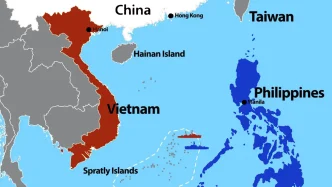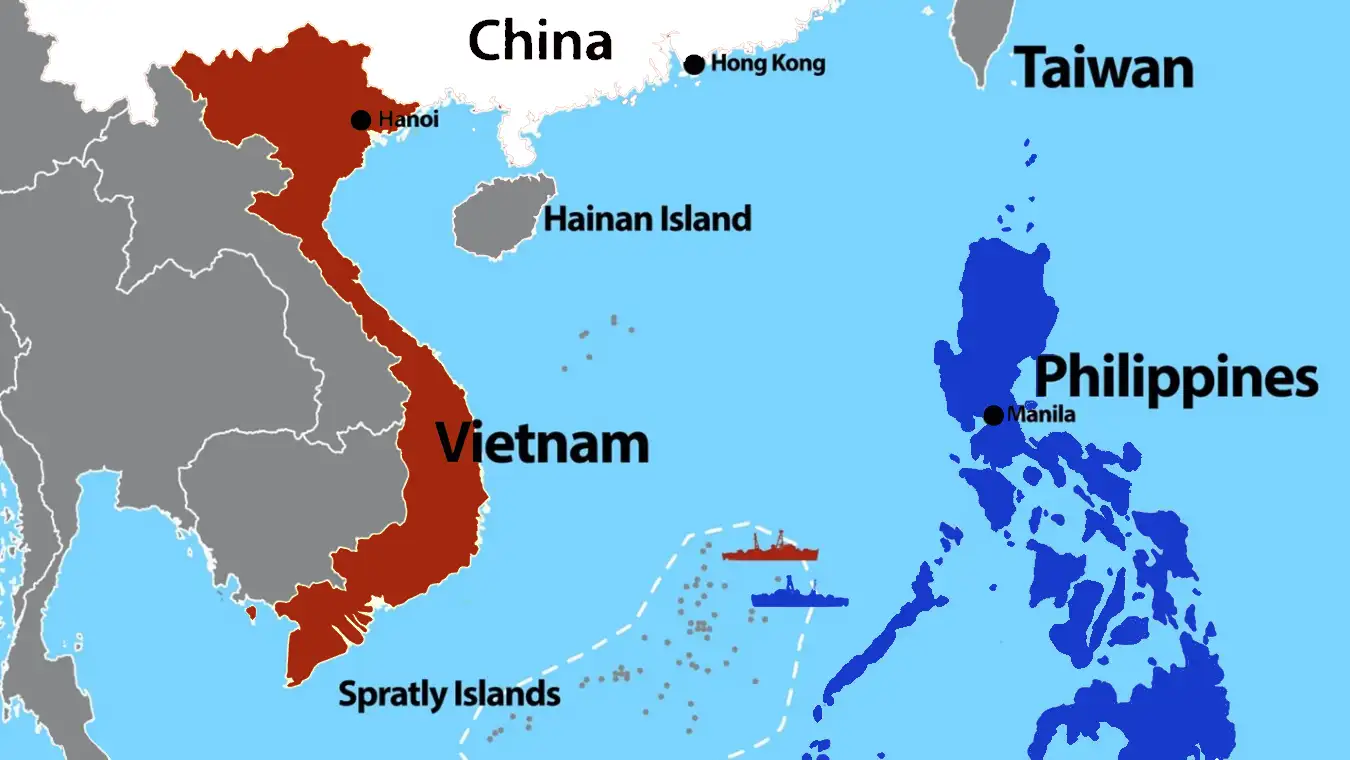In a significant move to bolster regional cooperation, the Philippines and Vietnam have renewed their commitment to deepen bilateral ties, focusing on maritime security and economic collaboration. This development comes against the backdrop of escalating tensions in the South China Sea, where overlapping territorial claims have long strained relations among ASEAN nations. The renewed partnership, highlighted during recent high-level talks, signals a unified stance on key regional issues and a push for a legally binding code of conduct in the disputed waters.
Renewed Commitment to Bilateral Cooperation
The Philippines and Vietnam, two nations with shared interests in the South China Sea, have reaffirmed their dedication to strengthening diplomatic and economic ties. During a recent meeting, leaders from both countries emphasized the importance of collaboration in addressing common challenges, including maritime disputes and regional stability. This renewed commitment builds on years of dialogue, with both nations seeking to enhance joint efforts in trade, defense, and cultural exchange.
Philippine President Ferdinand Marcos Jr. has been vocal about the need for solidarity among ASEAN member states. In a recent address to regional leaders, Marcos urged his peers to adopt a legally binding code of conduct for the South China Sea, a proposal that has gained traction among nations wary of escalating conflicts in the region. “We must work together to ensure peace and stability in our shared waters” said Marcos, as reported by local outlets. His call for a formal agreement reflects a broader push for rules-based governance in one of the world’s most contested maritime zones.
Vietnam, which has its own disputes with China over the Paracel and Spratly Islands, shares similar concerns. Hanoi has consistently advocated for peaceful resolutions and adherence to international law, including the 1982 United Nations Convention on the Law of the Sea (UNCLOS). The alignment of interests between Manila and Hanoi underscores a growing recognition that bilateral partnerships within ASEAN can serve as a counterbalance to external pressures.
South China Sea: A Regional Flashpoint
The South China Sea remains a critical geopolitical arena, with an estimated $3.4 trillion in trade passing through its waters annually. The region is also believed to hold vast reserves of oil and natural gas, making it a strategic priority for claimant states. The Philippines and Vietnam, alongside Brunei, Malaysia, and Taiwan, have overlapping claims with China, which asserts control over nearly 90% of the area through its controversial “nine-dash line.”
Recent years have seen a surge in military activities and confrontations in the region, including vessel stand-offs and the construction of artificial islands. For the Philippines, incidents near the Second Thomas Shoal—where Chinese coast guard vessels have repeatedly blocked Filipino supply missions—have heightened tensions. Vietnam, meanwhile, has faced similar challenges, with fishing boats often harassed in disputed waters near the Paracel Islands.
Marcos’s push for a legally binding code of conduct aims to establish clear guidelines for behavior in the South China Sea, reducing the risk of miscalculations that could lead to broader conflict. While negotiations for such a code have been ongoing within ASEAN for years, progress has been slow, hampered by differing priorities among member states and external influences. Analysts suggest that the renewed Philippines-Vietnam partnership could inject fresh momentum into these discussions, though challenges remain. “If confirmed, a stronger alliance between Manila and Hanoi may pressure other ASEAN nations to prioritize the code of conduct” said Dr. Maria Lopez, a regional security expert based in Manila.
Economic and Defense Collaboration
Beyond maritime issues, the Philippines and Vietnam are exploring deeper economic ties as part of their renewed partnership. Trade between the two nations has grown steadily in recent years, with key sectors including agriculture, manufacturing, and technology. In 2024, bilateral trade reached an estimated $7 billion, with Vietnam exporting rice and electronics to the Philippines, and Manila supplying processed foods and raw materials in return. Leaders from both countries have expressed interest in further reducing trade barriers and investing in joint infrastructure projects.
Defense cooperation is another pillar of the relationship. The two nations have conducted joint maritime exercises in recent years, aimed at improving coordination and building trust. These activities, while modest in scale, send a symbolic message of unity in the face of shared security concerns. There are also discussions about expanding intelligence-sharing agreements to better monitor activities in the South China Sea, though details remain under wraps.
For Vietnam, partnering with the Philippines offers a chance to diversify its regional alliances, reducing over-reliance on any single power. For the Philippines, the relationship provides a crucial ally within ASEAN, particularly as Manila navigates its own complex balancing act between major powers like the United States and China. “This partnership is not just about countering threats; it’s about building a sustainable framework for mutual growth” said a senior Vietnamese diplomat during recent talks.
Domestic Political Context in the Philippines
The push for stronger ties with Vietnam comes at a time of significant domestic political activity in the Philippines. President Marcos Jr.’s administration has been under scrutiny for what some critics describe as a “purge” of political opponents, raising questions about whether his regional diplomacy is a genuine effort at reform or a strategic power play. Reports suggest that Marcos’s government has moved to sideline key figures associated with the previous administration of Rodrigo Duterte, including legal challenges and reshuffles within the bureaucracy.
While the administration frames these actions as part of an anti-corruption drive, skeptics argue they may be aimed at consolidating power ahead of future elections. Public sentiment, as reflected in recent surveys, shows a divided populace—many Filipinos still rely heavily on television for information about political candidates, which can shape perceptions of such moves. The Marcos government’s ability to balance domestic reforms with regional leadership will likely influence how its partnership with Vietnam is perceived at home.
Adding to the complexity is the ongoing legal battle involving former President Duterte at the International Criminal Court (ICC). The ICC prosecutor recently opposed Duterte’s bid to disqualify two judges in a case related to his controversial drug war, which resulted in thousands of deaths. While this issue is separate from the Vietnam partnership, it underscores the broader challenges Marcos faces in managing the Philippines’ international image while addressing historical grievances.
Looking Ahead: Challenges and Opportunities
As the Philippines and Vietnam deepen their ties, several hurdles loom on the horizon. Chief among them is the need to navigate ASEAN’s internal divisions, where consensus on South China Sea issues remains elusive. Both nations must also contend with domestic priorities—Manila with its political transitions and Hanoi with its economic reforms—that could divert attention from bilateral goals.
Yet, the potential rewards of this partnership are substantial. A united front on maritime security could pave the way for broader regional cooperation, while economic collaboration offers a pathway to shared prosperity. For now, the renewed commitment between the two nations stands as a beacon of hope in a region often defined by discord. As Marcos and his Vietnamese counterparts press forward, the question remains: can this alliance catalyze lasting change in the South China Sea, or will it be tested by the very tensions it seeks to address?
















